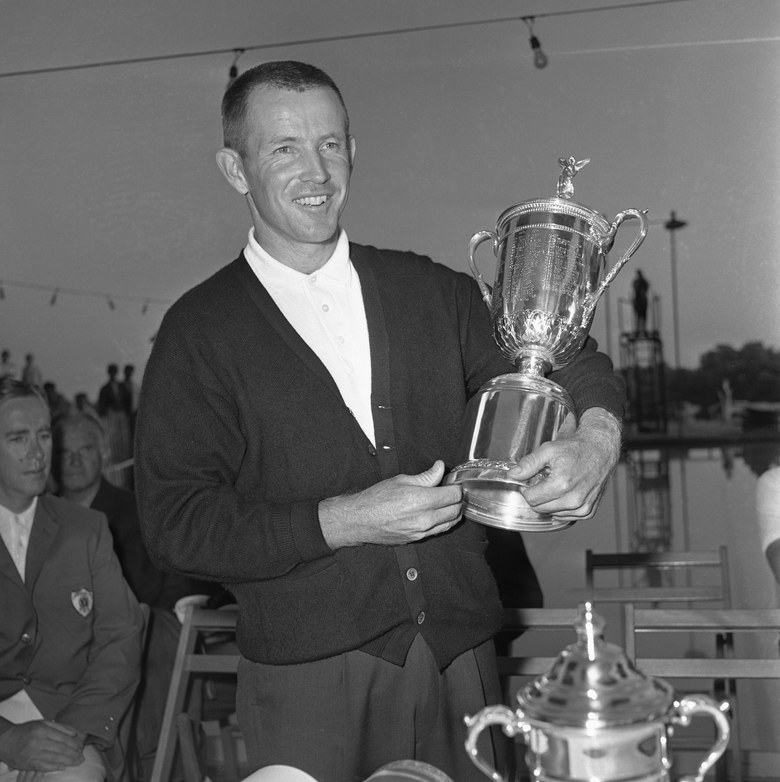Bettmann
Gene Littler receives the US Open Championship cup at Oakland Hills here 6/17. Littler’s final score was 281 for 72 holes.
By John Strege
Gene Littler was renowned for the quality of a golf swing that was suitable for framing, an effortless, fluid motion that produced 29 PGA Tour victories, including a U.S. Open, and took him to the World Golf Hall of Fame.
One day, Tommy Aaron was watching him on the practice tee. “Doesn’t take long for a Rolls Royce to warm up, does it?” Aaron said. Gene Sarazen said Littler had “a perfect swing like Sam Snead’s — only better.”
Littler, who was called Gene the Machine, died on Saturday. He was 88.
A San Diego native, Littler was 15 or so when Sam Snead was in the Navy and stationed in San Diego during World War II. Wherever Snead played in the area, Littler was probably nearby, watching and learning.
“I would stand close by and watch him,” Littler told Vartan Kupelian, writing for PGATour.com in 2012. “I think I picked up some things.”
He also took lessons from Johnny Bellante, the pro at La Jolla Country Club who also tutored Mickey Wright.
Littler won the U.S. Amateur in 1953. A year later, while still an amateur, he won the San Diego Open by four shots and turned professional later that year.
His crowning achievement, of course, was his U.S. Open victory at Oakland Hills Country Club in 1961, when he overcame a three-stroke deficit by shooting a 68 in the final round.
Littler was a quiet, unassuming man belying his status as a star. “Littler…was playing brilliant golf in the final round — and he was doing it unnoticed, as this splendid athlete, with his amazing talent for obscurity, so often has during the past years,” Sports Illustrated’s Alfred Wright wrote about the final round of the ’61 Open. “Jack Murphy, a golf writer for The San Diego Union, counted Littler’s gallery on the 3rd hole on the last round. There were seven people. By the 11th it was up to about a hundred.”
He preferred spending time at home with his family to playing tournament golf.
“I probably would have performed better and won more tournaments had I not wanted to go home so often,” Littler told the Los Angeles Times in 1988. “But I guess I loved my family so much that that was the most important thing in my life.”









